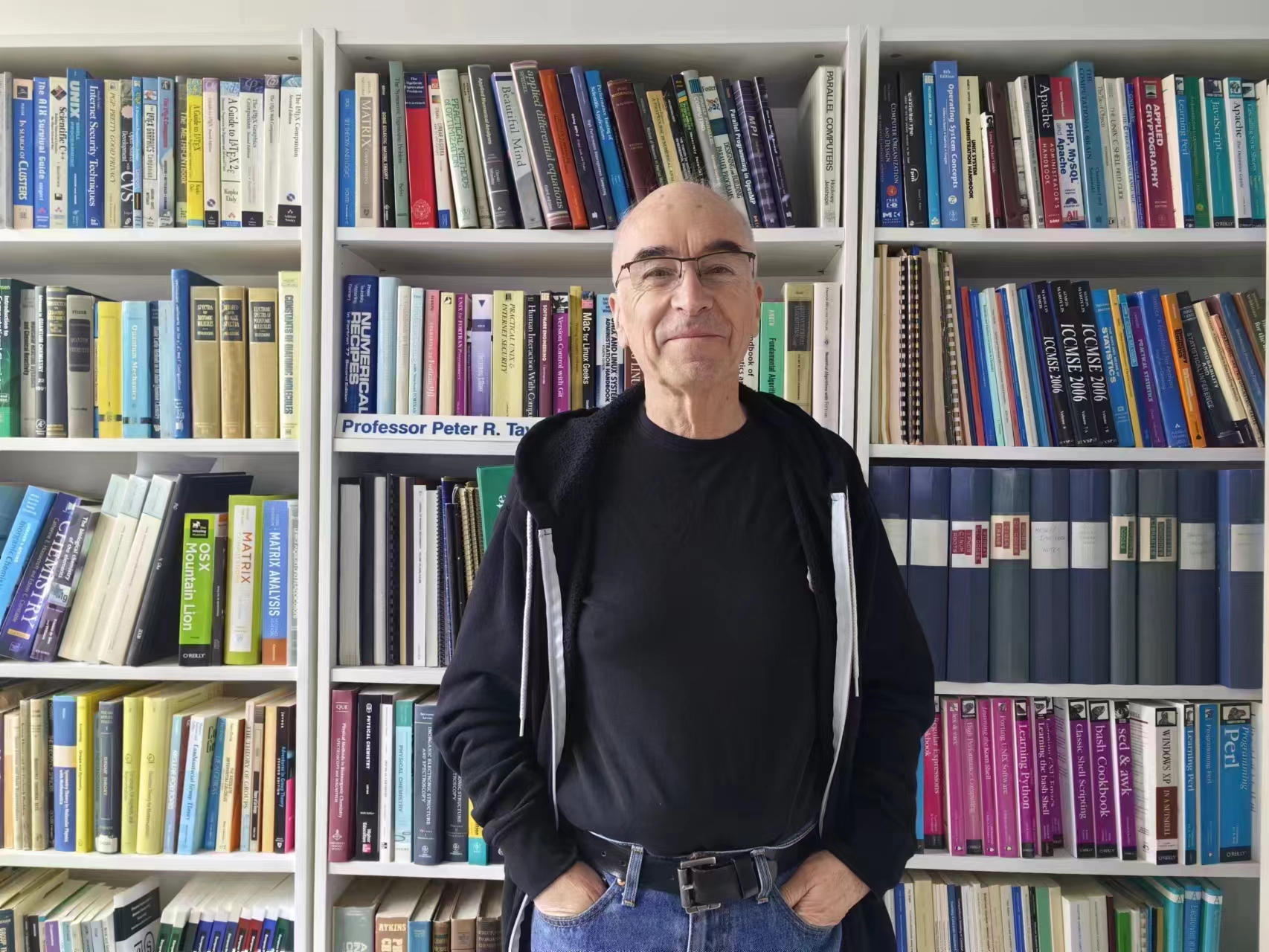Creativity, an Engine to Sustain Development

Professor Peter Taylor. (COURTESY PHOTO)
By?LONG?Yun?&?BI?Weizi
In contrast to the current focus on machine learning and AI, which have their own benefits, British scientist Peter Taylor said in a recent interview with Science and Technology Daily that, "Creativity is a crucial advantage that humans have over machines, which allows them to create something from nothing."
Professor Taylor is a renowned scientist in computational chemistry and a faculty member of the School of Pharmaceutical Science and Technology at Tianjin University (TJU).
A witness of a rising field
According to Taylor, he has been fascinated with the subject of molecular structure and chemistry for his entire career. Over the years, he has made significant contributions to the field of computational chemistry, particularly in developing new methods for understanding molecular structure and reactions.
One of Taylor's most significant contributions has been the development of new methods to answer questions about molecular structure and reactions. These methods have been widely used by many research groups and have been incorporated into many computer programs.
Taylor made special mention of the benefits of computational chemistry. "I have been privileged to see the field move from something that was not widely applicable and used only by specialists, to something that's become just a mainstream tool for practicing chemists," he said, adding that researchers can study substances and reactions that might be too hazardous or difficult to learn in a laboratory setting through the new method, which makes it a cleaner and safer way to conduct research.
Promoting diversity and inclusion
Taylor is a strong advocate for boosting development of education. He stresses the importance of starting science education early in elementary school, to allow students to build a foundation of scientific knowledge. As part of this ethos, he has been involved in science teaching programs at both the high school and university levels, bringing students into the lab to do experiments and learn about computational chemistry.
From his perspective, scientists can inspire the next generation of scientists and ensure that scientific knowledge is widely understood and appreciated by sharing their knowledge and expertise with the public. In addition, Taylor is also involved in promoting diversity and inclusion in science. He has spoken out about the importance of creating a welcoming and inclusive environment for all students and researchers, regardless of their background or identity. "Science is a collaborative field, and it is essential to bring people together with different perspectives and experiences to solve complex problems," he said.
Apart from the emphasis on science and technology, the British scientist noted that cultivating an appreciation for culture, arts, history, as well as international interactions is also important to nurture personal and societal development.
An opportunity he could not refuse
Five years ago, Taylor met an exciting opportunity to work at TJU. "I could not refuse," he said. He was attracted by the internationalization program at the university, which aimed to teach in English, introduce a foreign faculty, and make the institution genuinely international. "Science is an international endeavor. Furthermore, every party benefits by collaboration and interaction," he said.
He described the academic environment in China as "well-equipped" and "stimulating," with excellent facilities and a robust research culture. He has been impressed with the level of support for research and the resources available to researchers in China.
He also praised the enthusiasm and dedication of the students he has worked with at TJU.
Informal exchanges at smaller meetings key
In the context of increasingly complicated global political issues, Taylor stressed the importance of international cooperation in scientific research. He highlighted the value of informal exchanges, such as meeting people at conferences and discussing ideas informally. Taylor believes such exchanges are crucial for building collaborations and discovering new approaches to problems.
However, he expresses his concern about the trend toward larger international scientific gatherings. In his experience, smaller meetings tend to be more productive in encouraging collaborations. Taylor suggests that more frequent smaller meetings could be more effective in catalyzing exchanges and promoting collaborations.
Taylor also applauded the role of formal schemes, such as some government scholarships and national initiatives, which provide funding for scientists to spend a fixed term in a different country. He suggests that finding mechanisms to move people around for extended periods and promoting more informal exchanges could be critical to successful international collaborations.
This article is also contributed by TJU.







